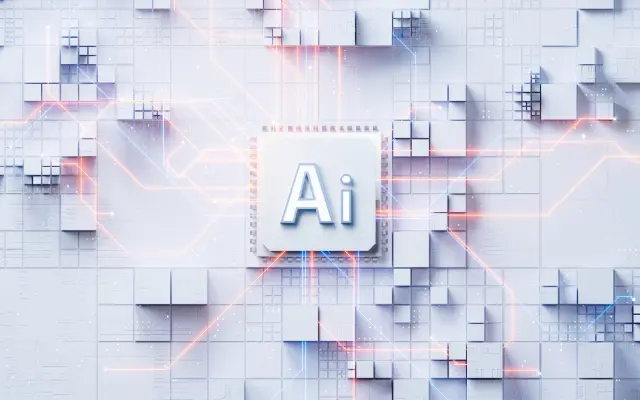Empowering the Hospitality Industry with Intelligent Quality Control Automation
In the fast-paced and competitive hospitality industry, maintaining high-quality standards is paramount for ensuring guest satisfaction and brand reputation. However, traditional quality control processes can be time-consuming, prone to human error, and lack the necessary scalability to meet the demands of modern operations.
This is where Quality Control Automation steps in, offering a transformative solution that streamlines processes, enhances accuracy, and empowers businesses to achieve operational excellence. By leveraging the power of Python, Artificial Intelligence (AI), and cloud-based solutions, hospitality businesses can automate key quality control tasks, such as:
- Inspection and Testing: Automated systems can perform thorough inspections of facilities, equipment, and food products, ensuring compliance with safety regulations and quality standards.
- Data Analysis: AI-powered analytics can analyze large volumes of quality control data, identifying trends, patterns, and areas for improvement.
- Real-Time Monitoring: Cloud-based systems enable real-time monitoring of quality control metrics, providing timely alerts and insights for proactive decision-making.
By embracing Quality Control Automation, the hospitality industry can unlock a world of benefits, including:
- Reduced operational costs
- Improved efficiency and productivity
- Enhanced guest satisfaction
- Strengthened brand reputation
- Increased revenue potential
Quality Control Automation is the key to unlocking a new era of operational excellence in the hospitality industry. By embracing this transformative technology, businesses can empower their teams, streamline processes, and deliver exceptional guest experiences.

Python, AI, and Cloud: The Cornerstones of Quality Control Automation
Python for Unattended and Attended Bots
Python is a versatile programming language that is ideally suited for developing both unattended and attended bots for quality control automation. Unattended bots can run autonomously, performing repetitive tasks such as data entry, inspection, and analysis. Attended bots, on the other hand, require human interaction and are typically used for tasks that require judgment or decision-making.
Cloud Platforms: Powerful Orchestrators
Cloud platforms offer a wide range of features and capabilities that make them ideal for orchestrating quality control automation. These platforms provide:
- Scalability: Cloud platforms can easily scale to meet the demands of even the largest hospitality operations.
- Reliability: Cloud platforms offer high levels of reliability and uptime, ensuring that quality control processes are always running smoothly.
- Security: Cloud platforms provide robust security measures to protect sensitive data and prevent unauthorized access.
AI for Enhanced Accuracy and Efficiency
AI techniques such as image recognition, natural language processing (NLP), and generative AI can significantly improve the accuracy and efficiency of quality control automation. For example, image recognition can be used to automate visual inspections of facilities and equipment, while NLP can be used to analyze guest feedback and identify areas for improvement.
By combining the power of Python, AI, and cloud platforms, hospitality businesses can create Quality Control Automation solutions that are:
- Accurate: AI techniques can help to eliminate human error and ensure that quality control processes are performed with precision.
- Efficient: Automation can free up staff from time-consuming tasks, allowing them to focus on more strategic initiatives.
- Scalable: Cloud platforms can easily scale to meet the demands of even the largest hospitality operations.
- Secure: Cloud platforms provide robust security measures to protect sensitive data and prevent unauthorized access.
Quality Control Automation is a game-changer for the hospitality industry. By embracing this transformative technology, businesses can empower their teams, streamline processes, and deliver exceptional guest experiences.

Building the Quality Control Automation with Python and Cloud
Sub-Processes of Quality Control Automation
The quality control automation process can be broken down into several sub-processes, including:
- Data Collection: Gathering data from various sources, such as sensors, inspections, and guest feedback.
- Data Analysis: Analyzing data to identify trends, patterns, and areas for improvement.
- Action Execution: Taking corrective actions based on the analysis, such as sending alerts, generating reports, or initiating maintenance procedures.
Automating Sub-Processes with Python and Cloud
Each of these sub-processes can be automated using Python and cloud technologies. For example:
- Data Collection: Python scripts can be used to extract data from sensors, databases, and other sources. Cloud platforms can be used to store and manage large volumes of data.
- Data Analysis: Python libraries such as Pandas and NumPy can be used to analyze data and identify trends. Cloud platforms provide powerful computing resources for complex data analysis tasks.
- Action Execution: Python scripts can be used to send alerts, generate reports, and initiate maintenance procedures. Cloud platforms can be used to orchestrate and manage these actions.
Data Security and Compliance
Data security and compliance are critical considerations for any quality control automation solution. Python and cloud platforms provide robust security measures to protect sensitive data and ensure compliance with industry regulations.
Advantages of Python over No-Code RPA/Workflow Tools
Python offers several advantages over no-code RPA/workflow tools for building quality control automation solutions, including:
- Flexibility: Python is a general-purpose programming language that provides greater flexibility and customization options compared to no-code tools.
- Scalability: Python code can be easily scaled to meet the demands of even the largest hospitality operations.
- Cost-Effectiveness: Python is an open-source language that is free to use, unlike proprietary no-code tools.
Algorythum’s Approach to Quality Control Automation
Algorythum takes a different approach to quality control automation by leveraging Python and cloud technologies. This approach provides our clients with:
- Customizable Solutions: We develop tailored solutions that meet the specific needs of each client’s business.
- Scalable and Reliable Systems: Our solutions are built on robust cloud platforms that ensure scalability and reliability.
- Cost-Effective Implementations: We use open-source tools and technologies to minimize costs for our clients.
By partnering with Algorythum, hospitality businesses can harness the power of Python and cloud technologies to build Quality Control Automation solutions that are:
- Accurate: AI techniques can help to eliminate human error and ensure that quality control processes are performed with precision.
- Efficient: Automation can free up staff from time-consuming tasks, allowing them to focus on more strategic initiatives.
- Scalable: Cloud platforms can easily scale to meet the demands of even the largest hospitality operations.
- Secure: Cloud platforms provide robust security measures to protect sensitive data and prevent unauthorized access.
Quality Control Automation is a game-changer for the hospitality industry. By embracing this transformative technology, businesses can empower their teams, streamline processes, and deliver exceptional guest experiences.

The Future of Quality Control Automation
The future of Quality Control Automation is bright, with many exciting possibilities for extending and enhancing the proposed solution using other future technologies. For example:
- Blockchain: Blockchain technology can be used to create a secure and transparent record of quality control data. This could help to improve trust and confidence in the quality of products and services.
- Internet of Things (IoT): IoT devices can be used to collect data from a wide range of sources, including sensors, equipment, and products. This data can be used to improve the accuracy and efficiency of quality control processes.
- Artificial Intelligence (AI): AI techniques can be used to automate complex quality control tasks, such as image recognition and natural language processing. This could help to further reduce human error and improve the overall quality of products and services.
Algorythum is at the forefront of Quality Control Automation innovation. We are constantly exploring new technologies and developing new solutions to help our clients achieve operational excellence.
Subscribe to our newsletter to stay up-to-date on the latest trends in Quality Control Automation and other industry-specific automation solutions.
Contact us today to get a free feasibility and cost-estimate for a custom Quality Control Automation solution that meets the specific needs of your business.
Together, we can build a future where Quality Control Automation is the norm, and businesses can deliver exceptional products and services with confidence.

Algorythum – Your Partner in Automations and Beyond
At Algorythum, we specialize in crafting custom RPA solutions with Python, specifically tailored to your industry. We break free from the limitations of off-the-shelf tools, offering:
- A team of Automation & DevSecOps Experts: Deeply experienced in building scalable and efficient automation solutions for various businesses in all industries.
- Reduced Automation Maintenance Costs: Our code is clear, maintainable, and minimizes future upkeep expenses (up to 90% reduction compared to platforms).
- Future-Proof Solutions: You own the code, ensuring flexibility and adaptability as your processes and regulations evolve.









